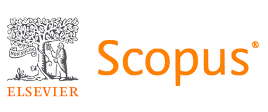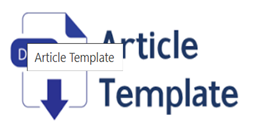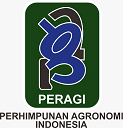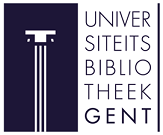Analysis of Food Security Index Predictions in Indonesia using Machine Learning Approach
Abstract
Keywords
Full Text:
PDFReferences
Ahadian, P., & Parand, K. (2022). Support vector regression for the temperature-stimulated drug release. Chaos, Solitons & Fractals, 165, 112871. https://doi.org/10.1016/j.chaos.2022.112871
Andaiyani, S., Marwa, T., & Nurhaliza, S. (2024). Ekonomi Biru dan Ketahanan Pangan: Studi Empiris Provinsi Kepulauan di Indonesia. Jurnal Ekonomi Indonesia, 13(1), 69–85. https://doi.org/10.52813/jei.v13i1.324
Bapanas. (2023). Peta Ketahanan dan Kerentanan Pangan Tahun 2023. https://fsva.badanpangan.go.id/?910c4c71bfed3c0a49daa1b18116a3c9
Bentéjac, C., Csörgő, A., & Martínez-Muñoz, G. (2021). A comparative analysis of gradient boosting algorithms. Artificial Intelligence Review, 54, 1937–1967. https://doi.org/10.1007/s10462-020-09896-5
Bühler, D., Hartje, R., & Grote, U. (2018). Matching food security and malnutrition indicators: evidence from Southeast Asia. Agricultural Economics, 49(4), 481–495. https://doi.org/10.1111/agec.12430
Christakis, I., Sarri, E., Tsakiridis, O., & Stavrakas, I. (2024). Investigation of LASSO Regression Method as a Correction Measurements’ Factor for Low-Cost Air Quality Sensors. Signals, 5(1), 60–86. https://doi.org/10.3390/signals5010004
De Sanctis, V., Soliman, A., Alaaraj, N., Ahmed, S., Alyafei, F., & Hamed, N. (2021). Early and Long-term Consequences of Nutritional Stunting: From Childhood to Adulthood. Acta Bio-Medica : Atenei Parmensis, 92(1), e2021168. https://doi.org/10.23750/abm.v92i1.11346
Dong, X., Yu, Z., Cao, W., Shi, Y., & Ma, Q. (2020). A survey on ensemble learning. Frontiers of Computer Science, 14, 241–258. https://doi.org/10.1007/s11704-019-8208-z
Doz, D., Cotič, M., & Felda, D. (2023). Random Forest Regression in Predicting Students’ Achievements and Fuzzy Grades. Mathematics, 11(19). https://doi.org/10.3390/math11194129
Frisnoiry, S., Pratiwi, I. A., Tarigan, N. C. W., & Sulaiman, R. P. (2024). Konsep, Indeks, Pendekatan, dan Strategi Ketahanan Pangan. Esensi Pendidikan Inspiratif, 6(2).
Huang, Y., Xu, W., Sukjairungwattana, P., & Yu, Z. (2024). Learners’ continuance intention in multimodal language learning education: An innovative multiple linear regression model. Heliyon, 10(6). https://doi.org/10.1016/j.heliyon.2024.e28104
Li, Z. (2022). Extracting spatial effects from machine learning model using local interpretation method: An example of SHAP and XGBoost. Computers, Environment and Urban Systems, 96, 101845. https://doi.org/10.1016/j.compenvurbsys.2022.101845
Maharadja, A. N., Maulana, I., & Dermawan, B. A. (2021). Penerapan Metode Regresi Linear Berganda untuk Prediksi Kerugian Negara Berdasarkan Kasus Tindak Pidana Korupsi. Journal of Applied Informatics and Computing, 5(1), 95–102. https://doi.org/10.30871/jaic.v5i1.3184
Manikas, I., Ali, B. M., & Sundarakani, B. (2023). A systematic literature review of indicators measuring food security. Agriculture & Food Security, 12(1), 10. https://doi.org/10.1186/s40066-023-00415-7
Martínez-Plumed, F., Contreras-Ochando, L., Ferri, C., Hernández-Orallo, J., Kull, M., Lachiche, N., Ramírez-Quintana, M. J., & Flach, P. (2019). CRISP-DM Twenty Years Later: From Data Mining Processes to Data Science Trajectories. IEEE Transactions on Knowledge and Data Engineering, 33(8), 3048–3061. https://doi.org/10.1109/TKDE.2019.2962680
Mienye, I. D., & Sun, Y. (2022). A survey of ensemble learning: Concepts, algorithms, applications, and prospects. IEEE Access, 10, 99129–99149. https://doi.org/10.1109/ACCESS.2022.3207287
Özen, F. (2024). Random forest regression for prediction of Covid-19 daily cases and deaths in Turkey. Heliyon, 10(4). https://doi.org/10.1016/j.heliyon.2024.e25746
Perum Bulog. (2014). Ketahanan pangan. Bulog. Retrieved from https://www.bulog.co.id/beraspangan/ketahanan-pangan/
Pristiandaru, D. L. (2023, May 7). Mengenal Tujuan 2 SDGs: Tanpa Kelaparan. Kompas. Retrieved from https://lestari.kompas.com/read/2023/05/07/080000986/mengenal-tujuan-2-sdgs-tanpa-kelaparan
Rincy, T. N., & Gupta, R. (2020). Ensemble learning techniques and its efficiency in machine learning: A survey. 2nd International Conference on Data, Engineering and Applications (IDEA), 1–6. https://doi.org/10.1109/IDEA49133.2020.9170675
Sabarella, Komalasari, W. B., Wahyuningsih, S., Sehusman, Manurung, M., Supriyati, Y., Rinawati, Saida, M. D. N., Seran, K., Arief, M., Firmansyah, R., & Amara, V. D. (2022). Statistik Ketahanan Pangan Tahun 2022. Pusat Data dan Sistem Informasi Pertanian Sekretariat Jenderal Kementerian Pertanian.
Saputra, G. H., Wigena, A. H., & Sartono, B. (2019). Penggunaan Support Vector Regression dalam Pemodelan Indeks Saham Syariah Indonesia dengan Algoritma Grid Search. Indonesian Journal of Statistics and Its Applications, 3(2), 148–160. https://doi.org/10.29244/ijsa.v3i2.172
Saragih, B. (2022). Dapur Tahan Pangan, Sehat dan Bergizi (Pengentasan Kerawanan Pangan dan Gizi di Indonesia). Yogyakarta: Penerbit Deepublish.
Saragih, F. M., & Saragih, B. (2020). Gambaran Kebiasaan Makan Masyarakat Pada Masa Pandemi Covid-19. ResearchGate.
Shopnil, M. M. M., Husna, A., Sultana, S., & Islam, M. N. (2023). An Ensemble ML Model to Predict the Wastage of Food: Towards Achieving the Food Sustainability. 2023 International Conference on Next-Generation Computing, IoT and Machine Learning (NCIM), 1–6. https://doi.org/10.1109/NCIM59001.2023.10212669
Soekarwo. (2021, May 10). Sistem dan Upaya Memperkuat Ketahanan Pangan. Dewan Pertimbangan Presiden. Retrieved from https://wantimpres.go.id/id/2021/05/sistem-dan-upaya-memperkuat-ketahanan-pangan/
Suntoro, J. (2019). Data Mining: Algoritma dan Implementasi dengan Pemrograman PHP. Jakarta: Elex Media Komputindo.
Theobald, O. (2017). Machine Learning For Absolute Beginners (2nd ed.). Greater London, United Kingdom: Scatterplot Press.
United Nations. (2015). Goal 2 | Department of Economic and Social Affairs. United Nations. Retrieved from https://sdgs.un.org/goals/goal2
Utoro, P. A. R., Pujokaroni, A. S., Aini, Q., & Saragih, B. (2025). Factors and comparative analysis of COVID-19’s impact on household food security in rural and urban regions. Nutrición Clínica y Dietética Hospitalaria, 45(1). https://doi.org/10.12873/451utoro
Wijaya, H., Hostiadi, D. P., & Triandini, E. (2024). Optimization of XGBoost Algorithm Using Parameter Tunning in Retail Sales Prediction. Jurnal Nasional Pendidikan Teknik Informatika: JANAPATI, 13(3), 769–786. https://doi.org/10.23887/janapati.v13i3.82214
Yulianti, S. E. H., Soesanto, O., & Sukmawaty, Y. (2022). Penerapan Metode Extreme Gradient Boosting (XGBOOST) pada Klasifikasi Nasabah Kartu Kredit. Journal of Mathematics: Theory and Applications, 4(1), 21–26. https://doi.org/10.31605/jomta.v4i1.1792
Zhang, Y., Wang, Q., Chen, X., Yan, Y., Yang, R., Liu, Z., & Jiahong, F. (2022). The Prediction of Spark-Ignition Engine Performance and Emissions Based on the SVR Algorithm. Processes, 10, 312. https://doi.org/10.3390/pr10020312
Refbacks
- There are currently no refbacks.


























